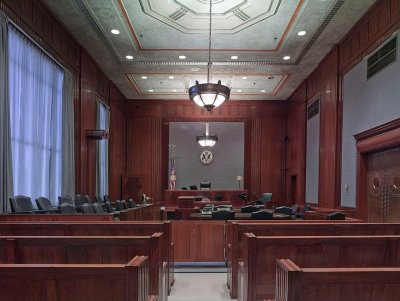


Since the recent guilty verdict given to Jennifer Crumley, wherein she was found guilty of four counts of involuntay manslaughter as a result of her teenage son’s deadly shooting spree at his school, we have been hearing the word “precendent” and “landmark” – what exactly does this mean?
In the realm of law, precedent plays a crucial role in shaping the outcome of legal disputes and establishing consistency within the judicial system. Precedent law, also known as stare decisis, is the principle that courts should follow the decisions of prior cases with similar facts and legal issues.
Precedent law operates on the principle that decisions made in earlier cases serve as a guide or authority for subsequent cases with similar factual and legal circumstances. When a court decides a case, it not only resolves the dispute at hand but also establishes a legal precedent that may be relied upon in future cases. This principle promotes consistency, predictability, and fairness in the application of the law.
There are two main types of precedent: binding and persuasive.
Binding Precedent: Binding precedent refers to decisions made by higher courts within the same jurisdiction. Lower courts are generally bound to follow the legal principles established by higher courts. For example, a decision made by a state’s Supreme Court would be binding on all lower state courts within that jurisdiction.
Persuasive Precedent: Persuasive precedent, on the other hand, involves decisions from courts in other jurisdictions or from lower courts within the same jurisdiction. While not strictly binding, persuasive precedent may be considered by a court in reaching its decision. This allows judges to draw upon a broader range of legal opinions and reasoning.
The doctrine of stare decisis, meaning “to stand by things decided,” is the cornerstone of precedent law. Under this doctrine, courts are generally obligated to adhere to the decisions of prior cases, particularly those made by higher courts within the same jurisdiction. Stare decisis fosters stability and consistency in the legal system by promoting reliance on established legal principles.
The impact of precedent on future cases cannot be overstated. When faced with a new legal dispute, judges and attorneys often look to precedent to guide their arguments and decisions. Precedent helps parties understand how similar issues have been resolved in the past and provides a framework for analyzing the relevant legal principles.
Moreover, the principle of stare decisis encourages parties to settle disputes outside of court, as they can anticipate how a court is likely to rule based on existing precedent. This promotes judicial efficiency and conserves judicial resources.
While precedent provides stability and predictability, it is not immutable. Over time, societal norms, legal theories, and interpretations may evolve, leading to shifts in legal doctrine. Higher courts have the authority to overrule or distinguish previous decisions if they determine that they are no longer sound or applicable to the current case.
In conclusion, precedent law is a fundamental aspect of the legal system that promotes consistency, predictability, and fairness. By following established precedents, courts ensure that similar cases are treated similarly, thus fostering trust and confidence in the judicial process. Understanding the significance of precedent law is essential for lawyers, judges, and citizens alike, as it shapes the trajectory of legal development and the resolution of future disputes.